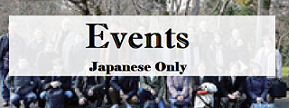Seminar index
3月15日13時に第15期公募情報を公開いたしました。
4月1日13時より応募者登録サイトへの登録が可能です。
Information on the 15th call for applications was opened at 13:00 on 15 March.
Applicants can register on the registration website from 1 April at 13:00.
210th Hakubi Seminar
”Pursuing the Spirit of the Artes Liberales: A Brief Review on J. Wiesner’s Analysis of Old Paper Collected from Kucha and Khotan”
- Speaker:Associate Professor CHING, Chao-jung (Hakubi 12th batch, Institute for Research in humanities)
- Date:25th January 2022 (Tuesday), 16:30-
- Venue:Hybrid (Zoom and The Hakubi Center for Advanced Research (Research Administration Building B1F) , Closed only to members related to Kyoto University
- Presentation Language:English
Summary
This talk gives a brief introduction to the contribution of Julius Wiesner (1838-1916, Rektor der Universität Wien in 1898-1899) to ancient paper analysis as well as his theoretical concerns. A special focus is placed on his pioneer achievements in examination of old paper fragments from various ancient sites around today’s Kucha and Khotan (Xinjiang, China), etc., with regard to his cross-disciplinary collaboration with A. F. R. Hoernle, M. A. Stein and other outstanding scholars. According to my investigation, the items examined by him include the ones from Khotan written in Chinese, Khotanese and other ancient languages, in addition to the famous Judæo-Persian letter Or. 8212/166 kept in the British Library. In general, Wiesner’s works always display the meticulous and positivist spirit of German-Austrian scholarship, while his excellent education in the Artes liberales in the late 19th century is self-evident. He is not only one of the great masters in plant physiology but also the founder of the history of Chinese paper as a modern field.
As a preliminary remark, I will also explain how I found traces of cotton within some ancient paper fragments collected from Xinjiang by the Otani Expeditions together with Prof. Enami Kazuyuki in winter 2017. This discovery broke the theory about “cotton paper” established by Wiesner and his colleague Joseph Karabacek(1845-1918, Direktor der Wiener Hofbibliothek in 1899-1916) at the turn of the 20th century.
Opening talk
"Subaru Hyper Supreme-Cam Meets Cosmic Ray Showers "
- Speaker: Assistant Professor FUJII, Toshihiro (9th, Graduate School of Science)
- Presentation Language:English









